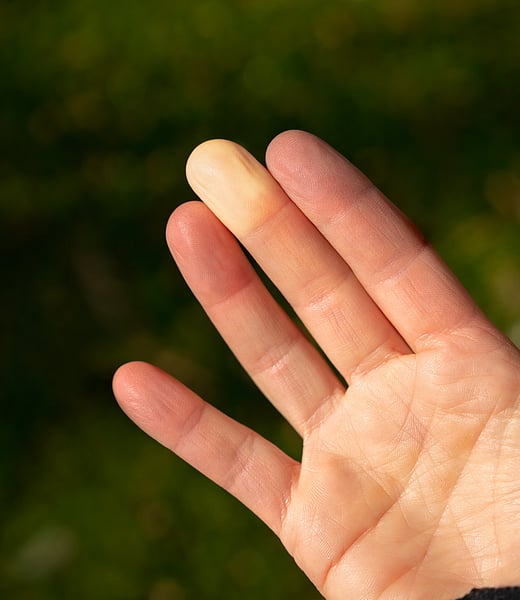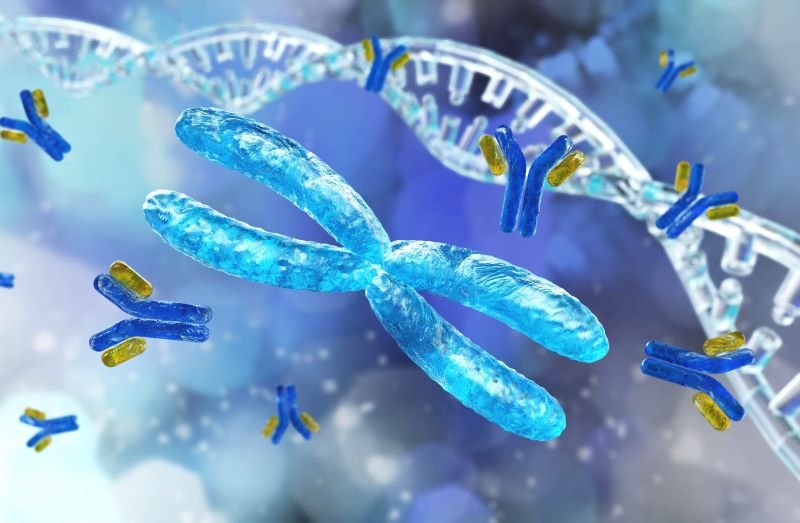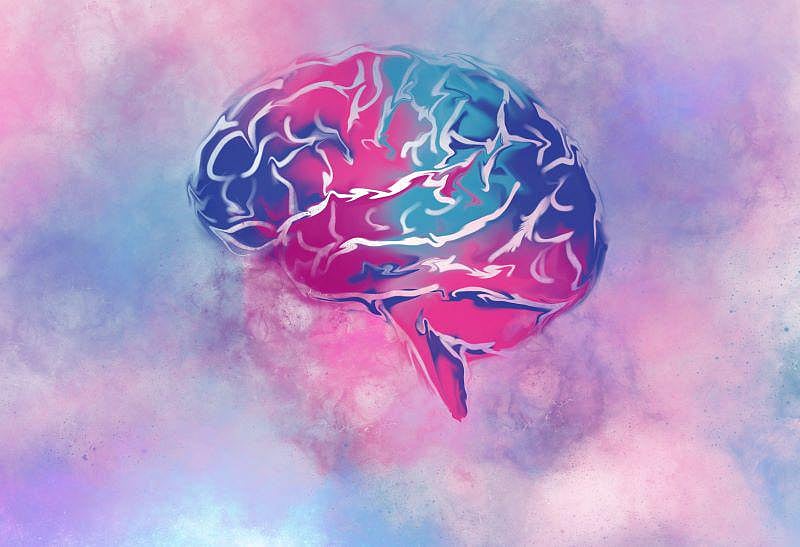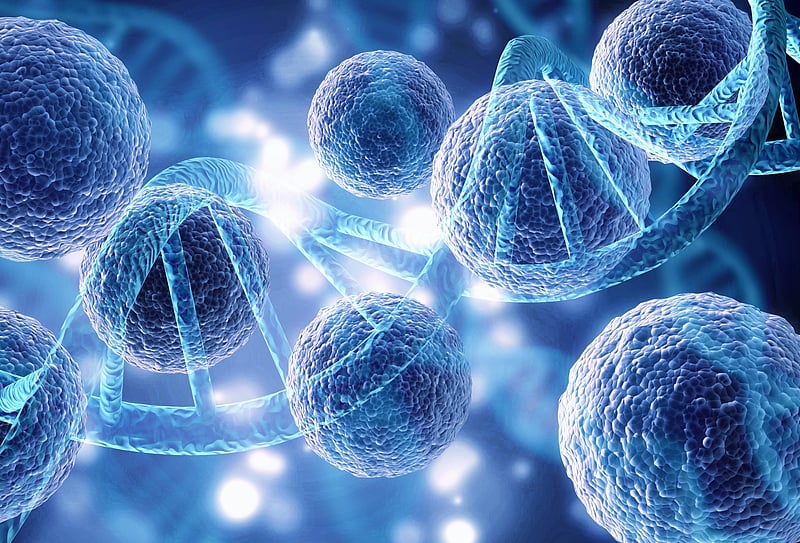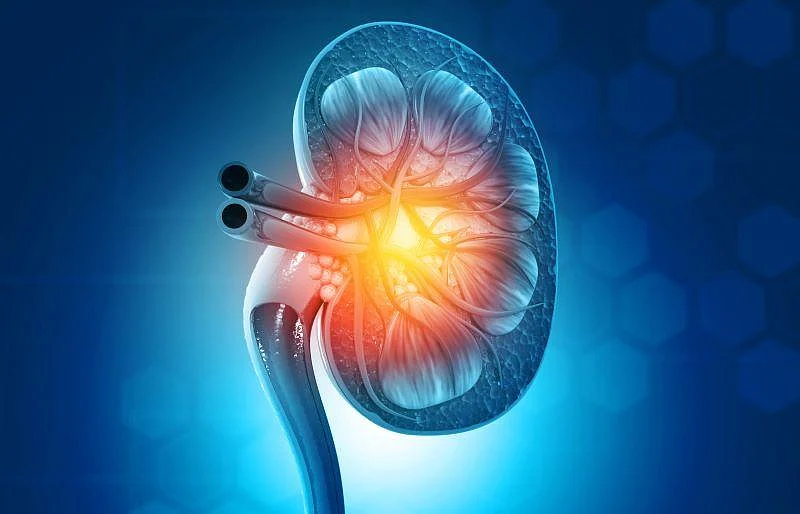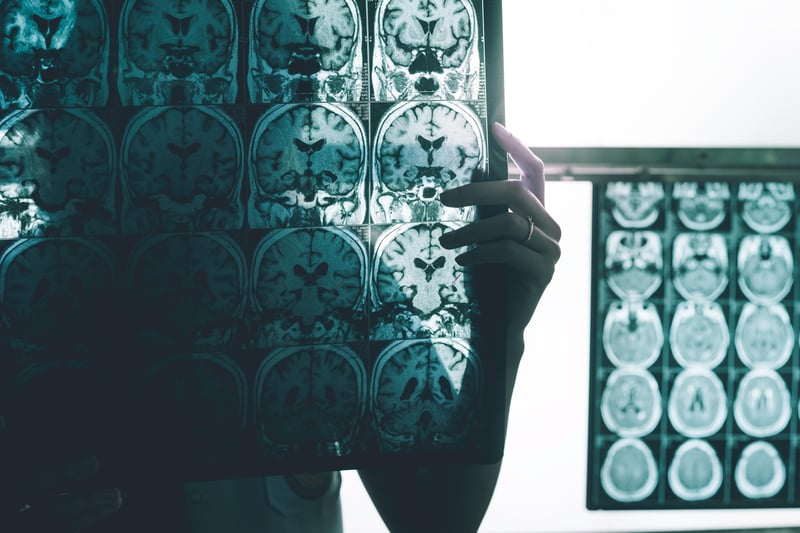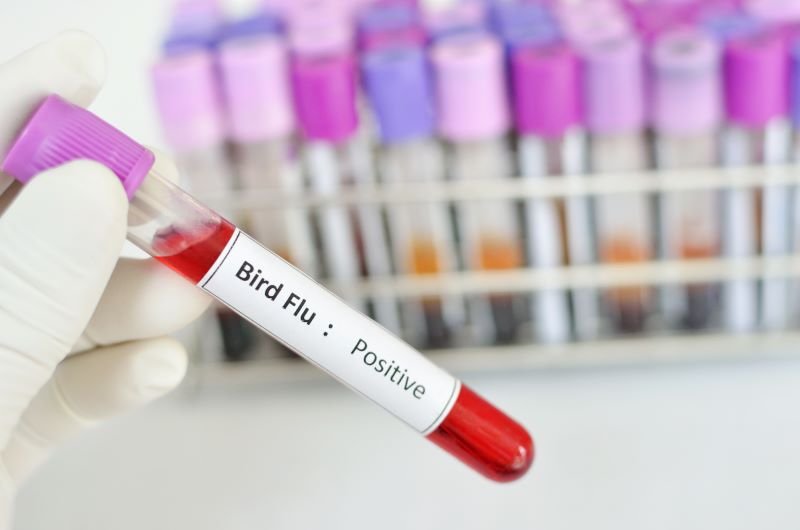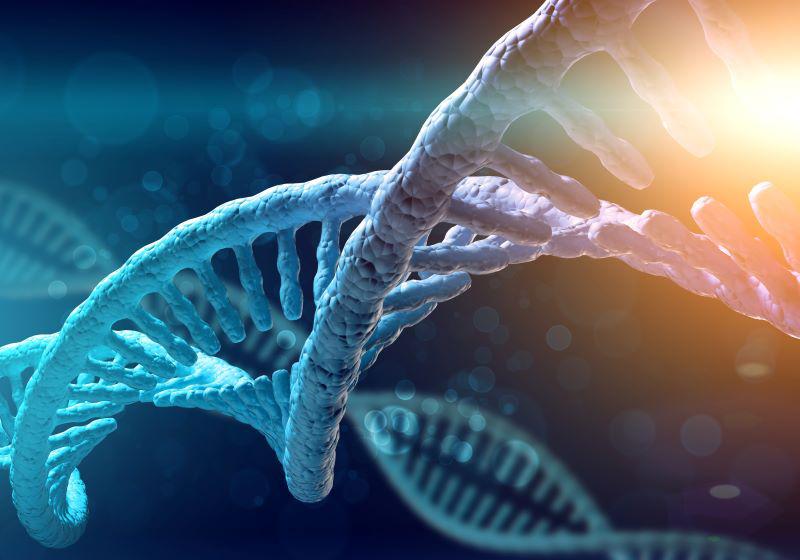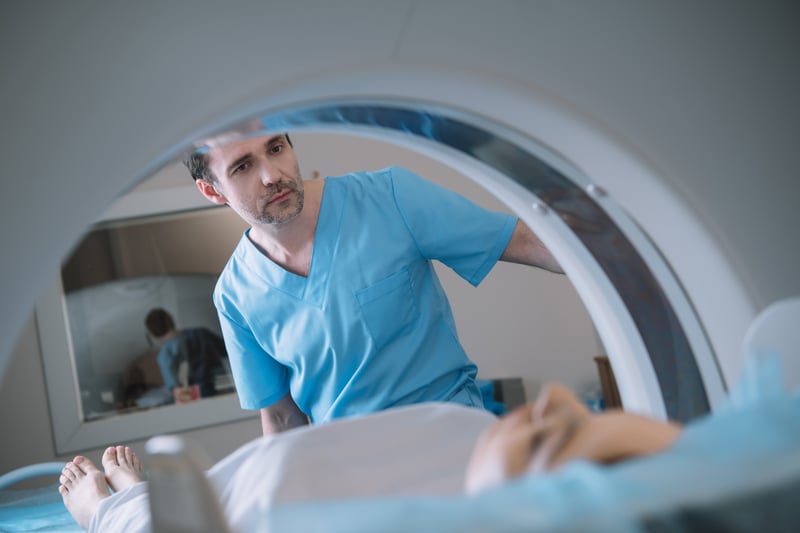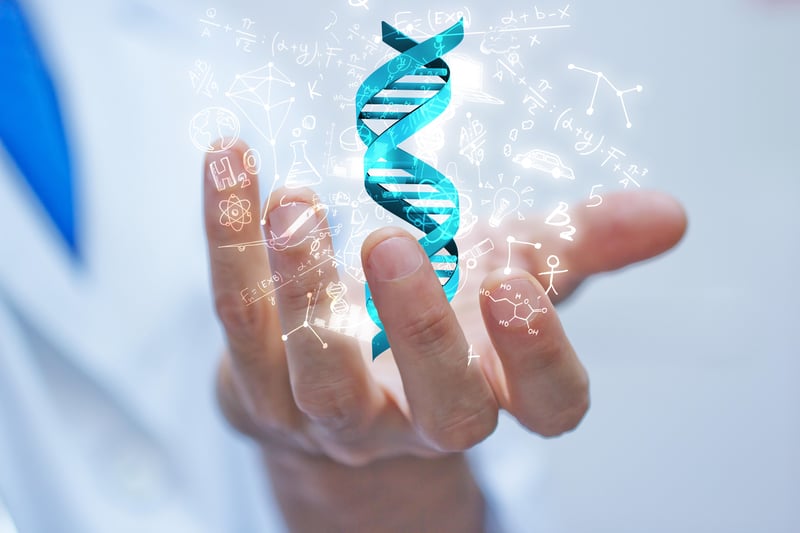Get Healthy!
340 Results for search "Genetics".
Health News Results - 340
Two newly discovered genetic variations can have a powerful effect on a person's risk for obesity, a new report says.
Variants in the gene BSN, also known as Bassoon, can increase risk of obesity as much as sixfold, researchers report April 4 in the journal Nature Genetics.
These variants affect about 1 in every 6,500...
- Dennis Thompson HealthDay Reporter
- |
- April 4, 2024
- |
- Full Page
Folks with genetically-driven stress are more likely to suffer heart attacks after nerve-wracking events or times of unrest, a new study shows.
People with above-average genetic scores linked to neuroticism and stress were 34% more likely to experience a heart attack followi...
- Dennis Thompson HealthDay Reporter
- |
- March 28, 2024
- |
- Full Page
THURSDAY, March 21, 2024 (HealthDay news) -- For the first time ever, doctors have transplanted a genetically edited pig kidney into a human suffering from advanced kidney failure.
Such pig kidneys, altered to lower the risk of rejection and disease, have been successfully placed into monkeys and brain-dead human donor bodies.
But Rick Slayman, 62, is the first living patient to rec...
- Dennis Thompson HealthDay Reporter
- |
- March 21, 2024
- |
- Full Page
It only appears to work until age 74, but a new study has identified a gene variant that protects men from from severe illness and death when COVID lands them in the hospital.
The protective gene appears to help tamp down inflammation, researchers say. It is an interleukin-1 receptor antagonist (1L1RN) variant.
While inflammation is a normal response to infection, if left unch...
- Carole Tanzer Miller HealthDay Reporter
- |
- March 14, 2024
- |
- Full Page
Folks worried about becoming flabby in middle age should check out what their parents looked like when they were that age, a new study says.
People are six times more likely to become obese in middle age if both their parents were chubby during that time of their lives, according to research to be present...
- Dennis Thompson HealthDay Reporter
- |
- March 8, 2024
- |
- Full Page
Nearly a quarter of Labrador retrievers are more likely to be obese due to a genetic “double-whammy,” a new study finds.
This gene mutation causes Labradors to both feel hungry all the time and also burn fewer calories, British researchers report.
The mutation involves a gene called POMC, which plays a critical role in hunger and energy use among Labs.
About 25% of Labrado...
- Dennis Thompson HealthDay Reporter
- |
- March 7, 2024
- |
- Full Page
Rare gene-driven defects such as Down syndrome have occurred among human beings for many thousands of years, a new analysis of ancient DNA has revealed.
Not only did the birth defects exist, but these infants were often buried with care by their community. That suggests they were included as part of the community despite their differences, researchers said.
Six cases of Down syndrom...
- Dennis Thompson HealthDay Reporter
- |
- February 21, 2024
- |
- Full Page
Women who carry certain mutations in their BRCA1 or BRCA2 genes know they are at heightened odds for breast cancer.
Now, Canadian research suggests that for some patients a "risk-reducing" preventive mastectomy may cut the odds of dying from breast cancer later.
“The decision to have a risk-reducing mastectomy is often difficult for a woman to make, and the more evidence we are ab...
- Ernie Mundell HealthDay Reporter
- |
- February 20, 2024
- |
- Full Page
Accurate genetic tests for 10 common diseases are nearly ready for everyday use in doctor's offices, a new study says.
Gene scans for 10 common illnesses have been honed to the point that they now are being road-tested in clinical research, according to a team at the Broad Institute of MIT and Harvard.
The tests evaluate a person's specific genetic risk for conditions like atrial fi...
- Dennis Thompson HealthDay Reporter
- |
- February 20, 2024
- |
- Full Page
Everyone knows someone who gets COVID-19 repeatedly, and they probably also have that annoying friend who's never had the illness. What gives?
According to new research, over the long-term it's probably genetics that drives an individual's level of susceptibility to SARS-Cov-2.
“Our results suggest that initially, differences in shared home environment influenced who was infected ...
- Ernie Mundell HealthDay Reporter
- |
- February 2, 2024
- |
- Full Page
Black people are five times as likely as others to develop glaucoma and up to 15 times more likely to be blinded by the degenerative eye disease.
Now, a new study reports that genetics appears to be at least one factor contributing to this increased risk.
Researchers have identified three gene variants that could be fueling Black people's higher glaucoma risk, according to findings ...
- Dennis Thompson HealthDay Reporter
- |
- January 23, 2024
- |
- Full Page
DNA locked in the bones and teeth of more than 5,000 humans who lived in Asia and Europe up to 34,000 years ago are providing vital clues to a myriad of present-day medical conditions.
The descendants of these ancient peoples are living now in Europe and throughout the world. But their forebearers' genetic legacy lingers, according to researchers who presented their findings in four studi...
- Ernie Mundell HealthDay Reporter
- |
- January 11, 2024
- |
- Full Page
A rare genetic mutation found in 1% of people of European descent appears to cut their odds for Parkinson's disease in half, a new study finds.
A better understanding of how this bit of DNA works might lead to better prevention and treatment of Parkinson's generally, researchers at the University of Southern California (USC) said.
“This study advances our understanding of why peop...
- Ernie Mundell HealthDay Reporter
- |
- January 5, 2024
- |
- Full Page
Folks with a family history of heart disease might benefit from eating more oily fish like salmon, mackerel, herring and sardines, a new study finds.
Oily fish contain high levels of omega-3 fatty acids, which cannot be produced by the body and must be obtained from the diet.
People's risk of heart disease increased by more than 40% if they had low levels of omega-3 fatty acids plus...
- Dennis Thompson HealthDay Reporter
- |
- December 6, 2023
- |
- Full Page
MONDAY, Nov. 13, 2023 (Healthday News) -- Two new gene-editing treatments that target dangerously high levels of cholesterol in people with a genetic predisposition to the condition were found safe and effective in new, groundbreaking research.
While powerful drugs like statins can help manage cholesterol in most people, they can't treat those who have genes that predispose them to heart ...
- Robin Foster HealthDay Reporter
- |
- November 13, 2023
- |
- Full Page
Everyone knows smoking to be a major cause of cancer.
Now, exactly how tobacco smoke triggers tumor development just got a bit clearer, thanks to new Canadian research.
According to a team at the Ontario Institute for Cancer Research (OICR) in Toronto, smoking appears to prevent the formation of proteins that work to keep runaway cell development in check.
According t...
- Ernie Mundell HealthDay Reporter
- |
- November 8, 2023
- |
- Full Page
Scientists have discovered two genes that may trigger Raynaud's phenomenon, a condition that can cause fingers and toes to go cold and numb because of the constriction of tiny blood vessels under the skin.
“We identify two distinct genes that point to two distinct mechanisms,” lead researcher Ma...
- Cara Murez HealthDay Reporter
- |
- October 16, 2023
- |
- Full Page
Researchers have developed an antibody that can reduce Alzheimer's-like brain damage in lab mice -- inspired by the case of one woman with remarkable resistance to the disease.
The work, by researchers at Mass General Brigham, Harvard Medical School in Boston, and elsewhere, began a few years ago, with the case of a woman in Colombia who had shown "extreme protection" from Alzheimer's dis...
- Amy Norton HealthDay Reporter
- |
- October 9, 2023
- |
- Full Page
Going vegetarian is trendy and popular, along with being a healthy choice, but a large portion of those who say they want to stick with a plant-based diet don't.
It might come down to your DNA, suggests new research that has uncovered three genes that seem to be strongly linked to vegetarianism.
“It seems there are more people who would like to be vegetarian than actually are, an...
- Cara Murez HealthDay Reporter
- |
- October 4, 2023
- |
- Full Page
New research has discovered 12 gene variants that may be tied to an increased risk of attempting suicide.
These genes also may have links with physical and mental health woes, including chronic pain, attention-deficit/hyperactivity disorder (ADHD), lung conditions and heart disease.
The researchers hope this finding, published online Oct. 1 in the
Researchers have found a gene mutation linked to esophageal cancer, which could lead to better prevention and treatment strategies.
Investigators from Case Western Reserve University in Ohio found the mutation, potentially helping those at risk of what is a highly lethal cancer. Esophageal adenocarcinoma (EAC) is a cancer of your food pipe.
“With this discovery, we will be able t...
- Cara Murez HealthDay Reporter
- |
- September 22, 2023
- |
- Full Page
Women who carry mutations in genes known as BRCA have an elevated risk of breast cancer. But a large, new study suggests that risk may be lower than generally believed -- especially if a woman has no close relative with the disease.
The study, of more than 400,000 British adults, found that women who carried mutations in either of two genes -- BRCA1 or BRCA2 -- had a higher-than-average r...
- Amy Norton HealthDay Reporter
- |
- September 19, 2023
- |
- Full Page
A large number of drugs used to treat everything from multiple sclerosis to blood cancers to rheumatoid arthritis may cause a rare but often-fatal condition called progressive multifocal leukoencephalopathy (PML).
But a simple genetic test can determine who has a 10-fold higher risk for developing this condition, which means those patients could discuss safer treatment options with their ...
- Cara Murez HealthDay Reporter
- |
- September 13, 2023
- |
- Full Page
If you were a big baby -- or your spouse or partner was -- your baby has a good chance of being big, too.
New research shows parents who were large babies are more likely to give birth to a large baby.
Knowing this has the potential to improve prenatal care and interventions by identifying which pregnancies have higher risk of labor and delivery complications.
To study this, r...
- Cara Murez HealthDay Reporter
- |
- September 7, 2023
- |
- Full Page
Smoking may not only harm the smoker and those who breathe in the secondhand fumes, but also their future children.
New research suggests that boys who smoke in their early teens risk passing on harmful genetic traits to future children. The study probed the genetic profi...
- Cara Murez HealthDay Reporter
- |
- September 5, 2023
- |
- Full Page
As it stands, no one blood test or brain scan can definitively diagnose Parkinson's disease.
But researchers report this may soon change if a new blood test continues to show promise.
The test measures DNA damage in the mitochondria of cells, which is known to be higher in people with Parkinson's disease. Earlier research from the same group also showed there is an accumulation of m...
- Denise Mann HealthDay Reporter
- |
- August 31, 2023
- |
- Full Page
An international research team has achieved the first complete sequencing of the human Y chromosome, which is closely linked to male development.
This is the last of the human chromosomes to be fully sequenced, an effort that may shed light on everything from fertility to disease.
The work was led by the Telomere-to-Telomere (T2T) Consortium, which is a team of researchers funded by...
- Cara Murez HealthDay Reporter
- |
- August 23, 2023
- |
- Full Page
The brain is a complex organ, and a new study — believed to be the largest ever on the brain's genetics — identifies more than 4,000 genetic variants linked to brain structure.
The research, involving some 36,000 brain scans, was led by a team at the University of Cambridge in England.
Brains are quite varied in terms of overall volume, how the brain is folded and how thick the ...
- Cara Murez HealthDay Reporter
- |
- August 18, 2023
- |
- Full Page
Genetically engineered pig kidneys are nearing the point where they could provide a government-approved, sustainable supply of organs for sick humans awaiting a transplant, a pair of new studies argue.
A lightly modified pig kidney has continued to function more than a month in a brain-dead human donor kept alive on a ventilator, according to an ongoing study conducted at NYU Langone Heal...
- Dennis Thompson HealthDay Reporter
- |
- August 16, 2023
- |
- Full Page
A newly discovered genetic variant might explain why some people of African ancestry have naturally lower viral loads of HIV, an international team of researchers reports.
This variant, carried by an estimated 4% to 13% of people of African origin, reduces their risk of transmitting the virus and slows the progress of their own illness.
It's the first new genetic variant related to ...
- Dennis Thompson HealthDay Reporter
- |
- August 2, 2023
- |
- Full Page
In a study of families that have multiple children with autism, researchers have unearthed new insights into genes that might drive the disorder.
“Study design is critical, and not enough attention has been paid to studying families with more than one affected child,” said lead author Dr. Daniel Geschwind<...
- Cara Murez HealthDay Reporter
- |
- August 1, 2023
- |
- Full Page
You've likely heard that "you are what you eat,” but a new study suggests what you eat also has something to do with who you are — genetically speaking.
Researchers have identified nearly 500 genes that appear to directly influence what someone eats. These insights could help improve personalized nutrition to boost health or prevent disease, they said.
“Some genes we iden...
- Cara Murez HealthDay Reporter
- |
- July 24, 2023
- |
- Full Page
In the world of COVID-19 infections, the majority of patients develop symptoms, while about one-fifth mysteriously don't develop a cough, sore throat or other tell-tale signs of illness.
Now, new research finds that these symptom-free super-dodgers are more than twice as likely as others to carry a genetic mutation that seems to obliterate COVID-19.
“The mutation is a version...
- Alan Mozes HealthDay Reporter
- |
- July 19, 2023
- |
- Full Page
Alzheimer's disease is a devastating diagnosis, and if a close relative has had it you may worry whether you will be next.
According to the National Institutes of Health, it is estimated that over 6 million Americans over 65 suffer from Alzheimer's. Since this is primarily a disease that comes with age, t...
- Miriam Jones Bradley, RN HealthDay Reporter
- |
- June 21, 2023
- |
- Full Page
It's common knowledge that loss is a part of male aging — loss of hair, loss of muscle tone, loss of vision or hearing.
But men growing older also start losing the very thing that makes them biological males, their Y chromosome, and that can leave them more vulnerable to cancer, a new study says.
The loss of the Y chromosome can help cancer cells evade detection by the body's immu...
- Dennis Thompson HealthDay Reporter
- |
- June 21, 2023
- |
- Full Page
Learning that your loved one has Alzheimer's disease can be frightening and leave you feeling lost and unsure.
To help you better understand the condition and what you can do to manage it, experts detail what causes Alzheimer's disease. In this guide, you'll learn about the genetic, environmental and lifestyle factors that scientists think may interact to contribute to the development of ...
- Kirstie Ganobsik HealthDay Reporter
- |
- June 20, 2023
- |
- Full Page
The so-called “Viking disease” causes the fingers of many aging northern European men to lock up in a bent position, and researchers now think they know why.
Genetic variants inherited from Neanderthal man appear to be the most powerful risk factors for developing Dupuytren's contracture -- called the Viking disease because it mainly affects men descended from northern Europeans.
<...- Dennis Thompson HealthDay Reporter
- |
- June 14, 2023
- |
- Full Page
The most common screening test for prostate cancer so often returns a false positive result that it's no longer recommended for men older than 70, and it's offered as a personal choice for younger men.
But researchers think they've found a way to make the blood test for prostate-specific antigen (PSA) accurate enough to significantly reduce overdiagnosis and better predict dangerous cance...
- Dennis Thompson HealthDay Reporter
- |
- June 5, 2023
- |
- Full Page
Genetic mutations caused this latest bird flu season to become more severe, increasing the risk it poses to humans and other mammals, a new study finds.
The H5N1 avian influenza virus gained the ability to severely infect the brains of mammalian test subjects like ferrets, researchers with St. Jude Children's Research Hospital found.
That's a notable departure from previous strains ...
- Dennis Thompson HealthDay Reporter
- |
- June 2, 2023
- |
- Full Page
People with a genetic predisposition to Alzheimer's disease may have an increased risk of epilepsy, a new study says. And folks with a certain type of epilepsy may have higher odds of developing Alzheimer's disease.
Having Alzheimer's was linked to a 5.3% increased risk of generalized epilepsy, researchers report in the journal Neurology. This involves seizures that occur from b...
- Cara Murez HealthDay Reporter
- |
- May 25, 2023
- |
- Full Page
A unique genetic brew has benefitted a Scottish woman who lives virtually pain-free, heals more rapidly and experiences reduced anxiety and fear, researchers from University College London report.
Pain geneticists have been studying the woman, Jo Cameron, for a decade. She came to their attention when her doctor noticed that she experienced no pain after major surgeries on her hip and han...
- Dennis Thompson HealthDay Reporter
- |
- May 24, 2023
- |
- Full Page
When it comes to predicting heart trouble down the road, the arteries may say a lot more than the genes do, according to a new study.
Researchers found that CT scans of the heart arteries were better than genetics at predicting middle-aged adults' risk of heart disease in coming years.
In fact, people's genes gave little useful information over and above low-tech methods, such as me...
- Amy Norton HealthDay Reporter
- |
- May 23, 2023
- |
- Full Page
Researchers working to unlock the mysteries of autism report they have discovered differences among children when two in a family have the condition versus just one.
Scientists from Cold Spring Harbor Laboratory in New York have been researching the genetic origins of autism for two decades. Their discoveries have included thousands of genes that, when damaged, may cause a child to be bor...
- Cara Murez HealthDay Reporter
- |
- May 23, 2023
- |
- Full Page
A subset of people may be at high risk for both psychiatric disorders and for using marijuana, based on their genetics, according to a new study.
Researchers from the University of Oslo in Norway have found that some of the genetic variants associated with cannabis use are also linked to psychiatric disorders.
“These findings are important as they show that the complex links betw...
- Cara Murez HealthDay Reporter
- |
- May 23, 2023
- |
- Full Page
MONDAY, May 15, 2023 -- Researchers have discovered a genetic mutation that should actively protect people from Alzheimer's, thanks to a man belonging to a Colombian family known to be susceptible to the degenerative brain disease.
Based on his family's genetics, this unnamed patient should have started showing signs of Alzheimer's in his 40s.
“They start getting impaired at age 4...
- Dennis Thompson HealthDay Reporter
- |
- May 15, 2023
- |
- Full Page
Detailed remnants of human DNA can be found just about everywhere that people have been, a surprising finding that raises a host of ethical issues for researchers, a new study says.
Environmental samples of human DNA were found nearly everywhere, save for isolated islands and remote mountaintops where people have never visited, researchers said. While sequencing this DNA offers researcher...
- Dennis Thompson HealthDay Reporter
- |
- May 15, 2023
- |
- Full Page
Last year, gene researchers made news by announcing the completion of the first complete sequence of the human genome.
That effort has now been expanded, with researchers using that success as a springboard to create a comprehensive and sophisticated collection of genome sequences that more accurately captures human diversity.
The new “pangenome” includes the genome sequences of...
- Dennis Thompson HealthDay Reporter
- |
- May 10, 2023
- |
- Full Page
While newborns are only screened for about 60 treatable conditions, there are hundreds of genetic disorders that have targeted treatments.
Now, a national survey of experts in rare diseases found the vast majority support DNA sequencing in healthy newborns.
Testing, surveillance and treatment options exist for over 600 genetic conditions. This includes a growing number of devastat...
- Cara Murez HealthDay Reporter
- |
- May 9, 2023
- |
- Full Page
The influence of Neanderthals is evident right in the center of the faces of modern humans.
New research finds that genetic material inherited from Neanderthals affects nose shape. A particular gene made the nose taller from top to bottom.
This may have been necessary as ancient humans adapted to colder climates.
“In the last 15 years since the Neanderthal genome has been s...
- Cara Murez HealthDay Reporter
- |
- May 9, 2023
- |
- Full Page
















